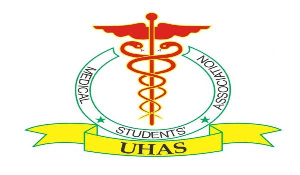Regional News of Wednesday, 7 July 2021
Source: GNA
UHAS makes giant stride in World Scientific Index 2021
The University of Health and Allied Sciences (UHAS) continues to showcase a strong outlook in the ‘AD Scientific Index 2021,’ which considered the rankings for scientists and research output in the Universities, subject areas, country, region, and world positions were released.
UHAS occupied the second, third, fourth, thirteenth, sixteenth, twenty-fifth, and forty-fourth positions in the top 50 rankings of the country despite only nine years of existence as a tertiary institution.
A total of 632 scientists were sampled in Ghana from 31 Universities.
Professor Fred Binka, the former Vice-Chancellor (VC) of UHAS, an astute Epidemiologist, placed second on the Ghana ranking and positioned as 83rd in Africa and occupying the 11,198th position in the global ranking.
Prof Seth Owusu-Agyei and Prof John Gyapong, the current VC placed third and fourth position and ranked 105 and 111 in Africa and 13,602th and 13,939th globally respectively.
The first position however went to Prof Dwomoa Adu of the University of Ghana (UG), who ranked 71st and occupies the 9,522nd position globally.
Prof George Dei, from the University of Education Winneba (UEW), came fifth on the Ghana ranking and placed 16,860th worldwide.
The UG remained the most ranked in the country and occupied some 24 other positions with scientists and researchers from the Kwame Nkrumah University of Science and Technology (KNUST) appearing nine times.
The Universities, which ranked between one to three positions were the University of Cape Coast, UEW, Koforidua Technical University, Ghana Technology University College, Catholic University College of Ghana, and the Ghana Institute of Management and Public Administration (GIMPA).
The subject areas include; agriculture and forestry, arts, design and architecture, business and management, economics and econometrics, education, engineering and technology, History, philosophy, theology; law and legal studies; medical and health sciences, natural sciences, and social sciences.
On the African setting, comprising 18,270 scientists and researchers from a total of 613 Universities and 47 countries, Prof Rajaa Cherkaoui El Moursli and Prof Farida Fassi both of Universite’ Mohammed V de Rabat, Morocco occupied the first and second spots and ranked 101 and 122 globally.
The third spot went to Prof Sahal Jacoob of the University of Cape Town, South Africa, and ranked 228.
South African Universities, however, claimed 37 positions out of the 50 top rankings with the University of Cape Town showing stronger visibility followed by others such as the University of Western Cape; Rhodes; Kwazulu Natal; Stellenbosch, Johannesburg; Nelson Mandela, and the University of Pretoria.
Egypt showed up six times in the ranking with Algeria and Sudan completing the African pact.
On the global scene, which considered 706,270 scientists and researchers, 187 counties and 11,523 Universities, ranked Prof Roland C. Kessler from Harvard University in the first position, Prof H. J. Kim of Korea occupied the second position, and Prof Joann E. Manson in the third position, also from Harvard.
The United States occupied additional 26 other positions in the top 50 rankings followed by Great Britain with six, Canada with four, Korea with three more, Italy with two, and the rest, Mexico, Greece, China, Switzerland, and Japan taking only one spot each.
Entertainment










